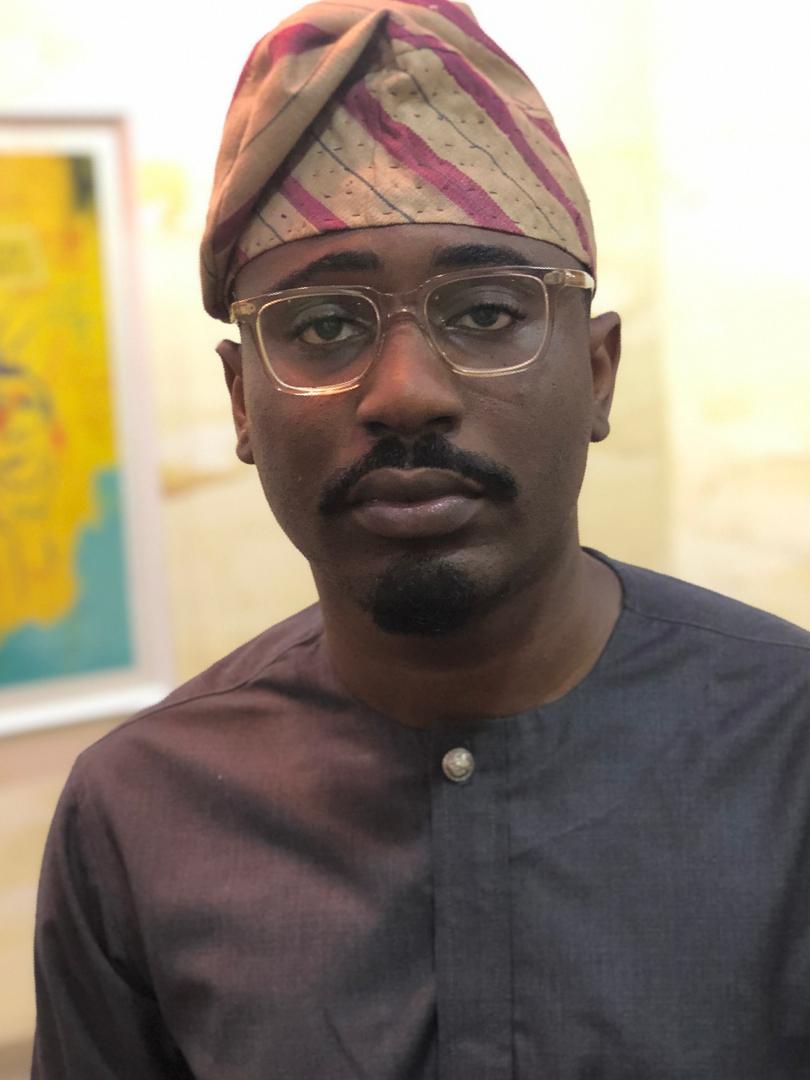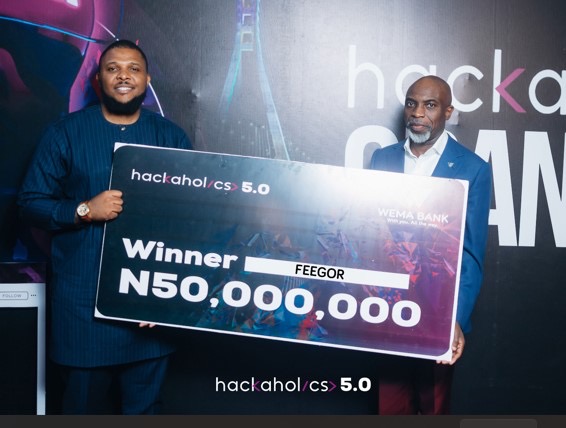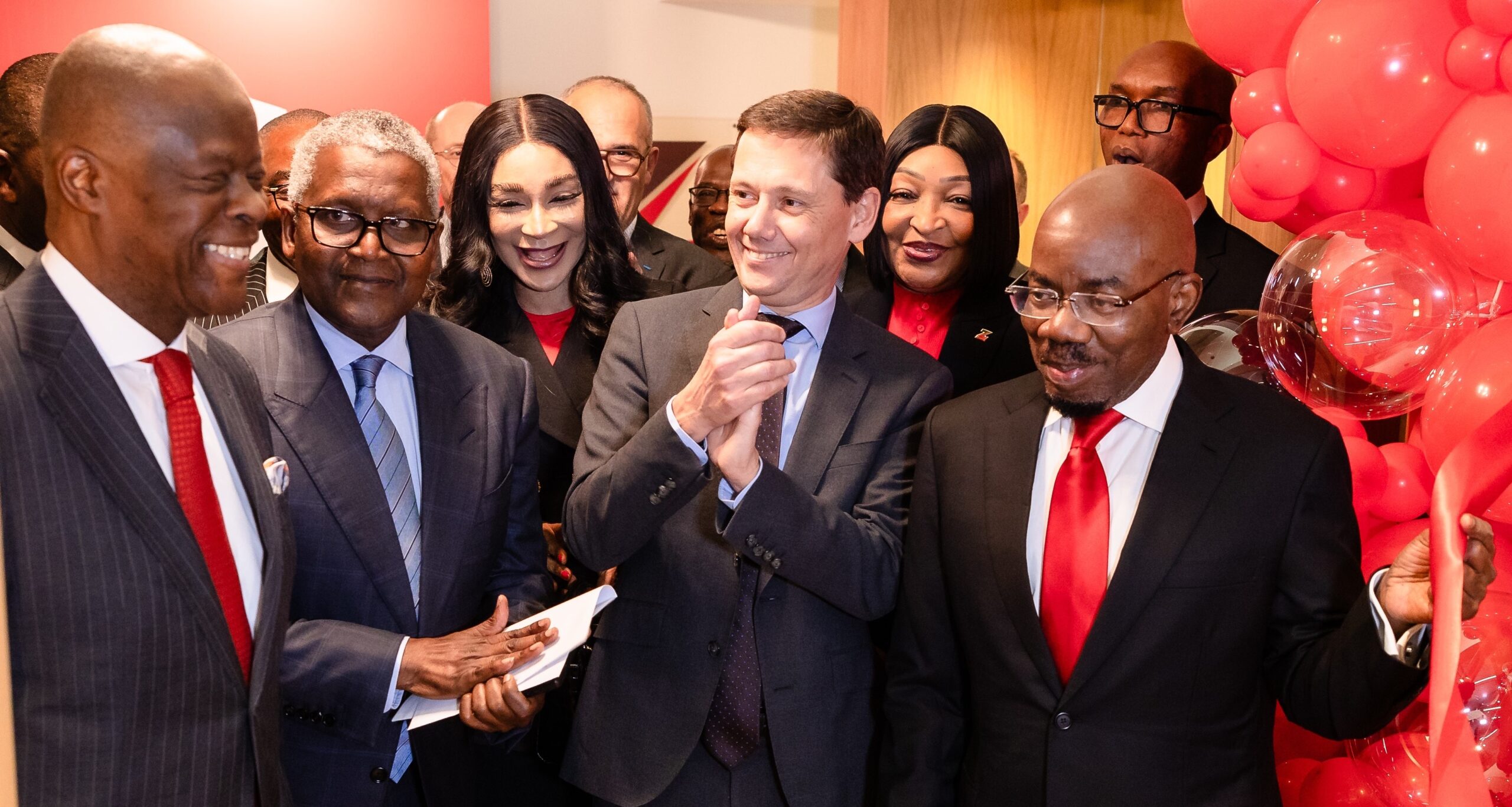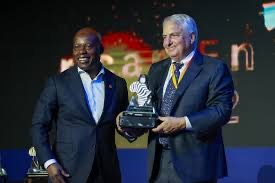The dark-skinned youth influencer, Dapo Awofisayo is the Group Executive Director of CPL Group, who graduated from the University of Kent, Canterbury with a B.sc in Economics. Apart from his immense contribution to entertainment and politics, he is also an Agric-businessman of high repute. At a point when most youth are gunning for white collar jobs, he invested his time in Agriculture. Ever since he made that decision, he has never regretted it. His decision is gradually paying off after being listed as a major key player in Nigeria’s Oil palm business sector, with a plantation size of over 4,000 Hectares of Land.
The Surulere, Lagos born entrepreneur in 2008, bagged an Ms.c in Finance and Management from the prestigious Cranfield School of Management. His resume politically, is quite an intimidating one. He is the founder of the popular grassroot political campaign group named; ‘Armoury for BOS’. A political group that spearheaded the 2019 campaign of the incumbent Governor of Lagos State, Babajide Sanwolu.
In this exclusive interview with the Publisher of www.cityspy.com.ng, OLADAPO SOFOWORA, the junior Awofisayo spoke extensively on issues surrounding the retarded growth in the oil palm business. He also proffered possible solutions for the government on how to boost production of oil palm as a possible replacement for crude oil, which would perhaps, generate huge revenue for the country.
He spoke on why most youth have refused to embrace agriculture, among other salient issues. EXCERPTS.
How did you find yourself in the Oil Palm business?
Oil palm in the past, was Nigeria’s biggest export. As a matter of fact, when the colonial masters did publications to market Nigeria to British citizens for investment, the number one resource highlighted was oil palm. On getting here, one of the things they picked up was our oil palm. We had vast plantations and resources. As far as oil palm is concerned, it was our major export not crude oil. It’s a shame that the tempo was not sustained by past government to get oil palm to the level where Malaysia and Indonesia are today. The two countries now control 90% of the market. Nigeria already had oil palm before these two countries delved into large scale production. As at today, they are controlling 90% of the global oil palm market.
What can the government do to increase Oil Palm Production?
Its basically increasing processing capacity. The CBN governor, Mr Godwin Emefiele, came out openly to push for aggressive expansion of the oil palm industry. He set up a meeting with most of us in the oil palm business last year March, in Abuja. At that meeting, the CBN did some match-making exercise with state Government representatives, who committed thousand of hectares for oil palm plantation. Plantation is not the problem of Oil palm, its production.
First, you assist the existing oil palms companies with access to credit facilities. The oil palm industry is operated like a class system. Like all industries, the oil palm industry is segmented. We have the elite in the industry, the likes of; Okomu, Presco, PZ Wilmar and JB Farms. These are our big boys! We are in the mid level, aspiring to get to elite status. Our plantation is on 4,000 hectares. If they approach a bank for N1Billion loan, they easily access it without stress. These boy’s don’t need loans. They are credit worthy, they can easily attract huge funds from any bank in the country; local and international. What we need is increase in our processing capacities. We don’t need money to run a plant. We already have an existing plantation. What we need money for is to increase processing capacity. We have enough oil palm refineries in Nigeria at the moment, but what the refineries lack is enough crude palm oil of acceptable grade. What the government need to do is increasing the processing capacity not plantation size.
Also, CBN released a N50billion fund, for agriculture, especially for oil palm sector. They route this money through commercial banks. When you route this money through commercial banks, they treat you like every other loan applicant. They set strict conditions for you to access the loan. By the time you go through the strenuous process, you probably don’t see the end of the process. I will never recommend government giving cash to any business. If they want equipment, Government should procure it and lease it out to them. They gradually pay the lease overtime, which covers cost of the asset.
Why do most Youth shy away from Agric Business?
Anytime you step out of your house, you have lots of bills to pay. How much support is the government putting in place to support Agriculture?. The business is not lucrative for young guys. Dapo Awofisayo is 32 years old, I got into the oil palm business through the already existing path laid down for me by my father. The company was already one of our many subsidiaries. I had the choice, but I chose to settle with this. I figured out that, people like me have to make this business look attractive to enable other people come and invest.
Young people have started getting into agriculture, but the rate is still not phenomenal for you to feel the direct impact of youths in agriculture. What I’ll say is that; there should be access to CREDIT. Another problem that comes with agriculture is dealing with local communities, land holders, insecurities in the country among other constrains. There is also the issue of multiple taxation, which plays a role in chasing young people from agriculture. Until the Gov’t sits down and puts together a proper plan, maybe then, youths will rapidly delve into Agric business.
What ways can you advise the government to curb excessive importation?
Access to credit. Every industry in the world is built on accessibility to credit facility. Some drastic steps must be taken, if it requires the government to lose money in the process, they should bear the loss. At the end of the whole process, tremendous achievement will be recorded. They also have to ensure that grass root small scale farmers, get credit to enable proper investment in agriculture. Look at the rice business for example, years ago, rice farmers and small rice mills owners were giving grants by the federal government to increase their production capacity. After that exercise, most of the rice we consume in Nigeria is mostly produced by us. This has reduced rice importation into the country. During Former President Goodluck Jonathan’s administration, they focused more on improving large scale production of Cassava. As we speak, Nigeria is the largest producer of cassava in the world. It takes determination, vision and sincerity of purpose to drive agriculture.
Why did you insist on oil palm business?
Like i said, this was a path laid down by dad which I, Dapo Awofisayo agreed to tow. One of our subsidiaries, CPL Agric, has purchased this company from the federal government. You see, my father is one of the foremost business men in Nigeria. He has interests across several sectors in the country. With his vision for industrialization and boosting local capacity, he set up his company in 1974. Manufacturing all kinds of products, from cosmetics, pharmaceutical drugs, personal and public hygiene products. In the late 70’s to the 80’s, He was the sole licensee in West Africa for Revlon Group Inc, a global cosmetics brand.
As at today, he is the champion of biomedical engineering in Nigeria among other things. When the Oil palm business was acquired, it wasn’t doing well for a while, I guess that was the tethering phase. Shortly after I moved back to Nigeria, I examined the business and decided to be part of its day to day operations. By virtue of the company’s managing director, we turn the fortune of the company around within a short while. All we require from the FG and CBN, is access to cheap credit and reduced barriers to accessing this cheap credit.
What capital strength is required to set up an oil palm business?
Typically oil palm business is not a place for small scale farmers. For a start up plantation, you will be looking at a minimum 500 hectares. Anything smaller than that, the headache won’t be worth while. The first thing that aides production of oil palm is having your land and money as capital. Sincerely speaking, it requires a huge amount of money laced with long patience. That’s why you need the support of the government because Banks are not patient enough with loan scheme. Only the Government has that patience capacity in repayment of loans. It takes 3/4 years for a newly planted seedling to grow to the point where it is commercially viable. So imagine planting a whole new field on 500 hectares.
Why do you think most Nigeria farmers are yet to fully embrace mechanical farming?
It’s simply the running cost. Do you know the cost of a bulldozer? or cost for rental on a daily basis?. There’s literally nothing more to it than cost. Lot of farmers will like to use mechanized farming methods, but the cost of doing that is quite exorbitant.
Advise for local oil palm refiners in maintaining personal hygiene during refining
As a manufacturer of palm oil, there must be accreditation. Processing of palm oil is a very simple thing as long as you have the necessary equipment’s. You can extract oil from the fruit, using a locally fabricated machine or the imported ones. The imported one tends to give better extraction rates and quality. On the issue of hygiene, the process of milling when using a proper mill like we have is hygienic. As majority of the milling process lacks human interaction with the product itself. Some compromise their production process, going through every dubious means to double their financial gains. To uphold hygiene in oil palm production, it’s quite essential to buy from an accredited retailer or wholesaler. With this, quality control can be ensured to avoid diseases during consumption. The government must continue to enlighten consumers on ways to purchase palm oil from credible sources.
People often say there’s nothing like wastage in the Oil palm business, how true is the claim?
It is true. After extracting the oil from the fruit, you have the nut inside. The nut inside is cracked and used to make Palm kernels oil. A lot of cosmetic companies buy them. Producers of biscuits also buy them. The chaff when dried properly, is used for fire boilers. The waste water from the processing is sold as well. From the fruit bunch itself, you are looking at about 4-5 different products that have commercial value. There’s no wastage in the business.

 Uncategorized5 years ago
Uncategorized5 years ago
 Entertainment6 years ago
Entertainment6 years ago
 Uncategorized7 years ago
Uncategorized7 years ago
 Uncategorized7 years ago
Uncategorized7 years ago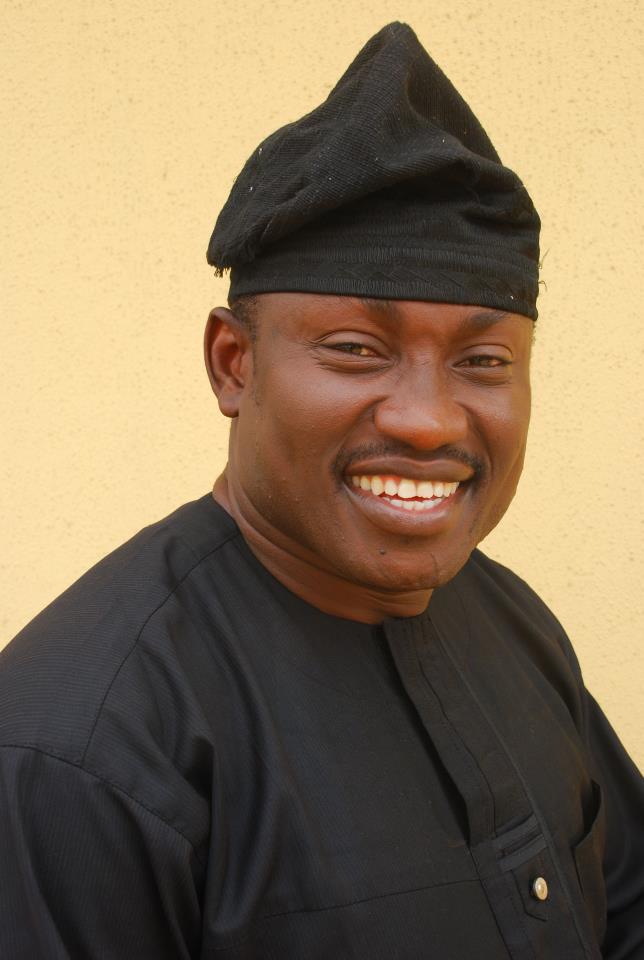
 Uncategorized7 years ago
Uncategorized7 years ago
 Uncategorized7 years ago
Uncategorized7 years ago
 Uncategorized7 years ago
Uncategorized7 years ago
 Trending News4 years ago
Trending News4 years ago





